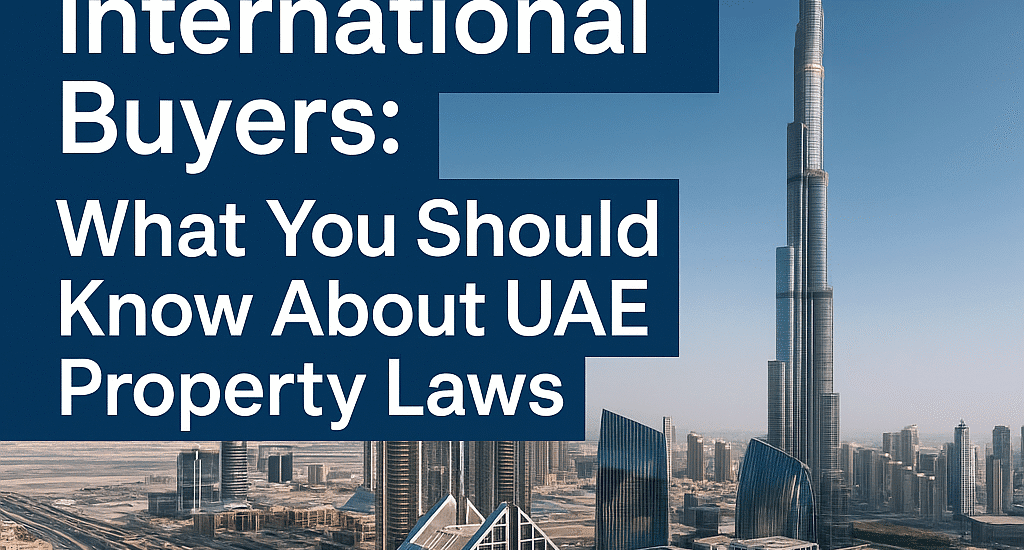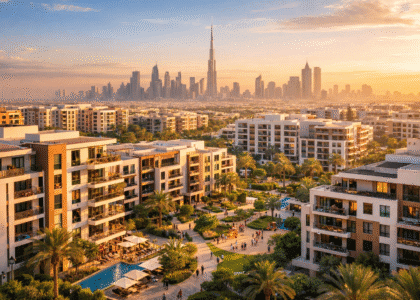The UAE continues to be a hotspot for real estate investment, attracting international buyers from all corners of the world. With Dubai and Abu Dhabi leading the charge in luxury developments and high rental yields, foreigners are increasingly looking to own property in the Emirates. However, before making any investment, it’s essential that international buyers understand the country’s unique property laws to ensure a smooth and secure purchase.
This blog from Heptagon provides a comprehensive overview of what international buyers need to know when entering the UAE real estate market.
1. Freehold vs Leasehold Areas
International buyers can purchase property in designated freehold areas, which are zones approved by the government for foreign ownership. In these zones, buyers own the property and the land it stands on outright. Popular freehold areas include Downtown Dubai, Dubai Marina, Palm Jumeirah, and Business Bay.
In leasehold areas, on the other hand, international buyers are allowed to lease property for a period (usually 10 to 99 years), but they do not own the land itself. Understanding the distinction is key before committing to a location.
2. Eligibility and Documentation
There are no restrictions on nationality for buying property in freehold areas. However, buyers must provide the following:
- Valid passport copy
- Proof of address (utility bill or bank statement)
- Proof of funds or a pre-approval from a UAE bank if financing
No residency visa is required to buy property, although owning real estate above a certain value can make you eligible for a long-term UAE residency visa—a significant incentive for many international buyers.
3. Ownership Structures for International Buyers
International buyers can purchase property in their personal name, through a UAE-registered company, or via offshore companies approved by the Dubai Land Department (DLD). While buying under a company name offers potential tax benefits and estate planning options, it’s essential to work with a legal advisor to choose the right structure.
4. Property Registration and Fees
All property transactions in the UAE must be registered with the appropriate land department. In Dubai, this is the Dubai Land Department (DLD).
Here’s what you can expect to pay:
- 4% transfer fee (of the property value)
- 2% to 5% agent commission
- Registration trustee fee (varies, approx. AED 4,000 – AED 6,000)
Buyers are advised to budget for these additional costs on top of the property price.
5. Mortgages and Financing Options
Several UAE banks offer mortgages to international buyers, even those without UAE residency. However, the down payment requirements are typically higher—often 25% to 35% for non-residents. Interest rates and loan terms can vary, so it’s wise to shop around or use a mortgage broker for the best deal.
Note that mortgage pre-approval is highly recommended before starting the property hunt.
6. Inheritance and Succession Laws
One crucial aspect that many international buyers overlook is inheritance law. The UAE applies Sharia law by default in cases of death, which may conflict with the property owner’s intentions.
To safeguard your property and designate beneficiaries according to your home country’s laws, you can:
- Register a Will with the DIFC Wills Service Centre
- Set up a Special Purpose Vehicle (SPV) or holding company
These options provide international buyers peace of mind regarding estate planning.
7. Rental Income and Taxation
One of the key attractions of UAE property is no income tax on rental earnings. However, international buyers must declare overseas income in their home countries, so it’s essential to consult a tax advisor familiar with both jurisdictions.
Dubai properties offer high rental yields—often 6% to 8%—making them attractive for investors looking for steady passive income.
8. Ongoing Obligations
After the purchase, international buyers must comply with annual service charges and maintenance fees, which vary based on the property size and location. These fees are payable to the developer or property management company and ensure the upkeep of common areas and facilities.
Regular property inspections and hiring a reliable property management company can help overseas owners maintain their investment without being physically present.
Conclusion
International buyers interested in UAE property have access to a vibrant, transparent, and rewarding market—but success depends on understanding the legal framework. From choosing the right area to navigating inheritance laws, due diligence is essential.
At Heptagon, we guide international investors through every step of the buying process in the UAE. Whether you’re purchasing your dream home or building a profitable portfolio, our experts ensure you stay compliant and confident.
✅ Ready to Make the Smart Move?
Explore our latest smart home listings or book a free consultation with a Heptagon advisor today. Let’s help you find a home that’s not just modern—but future-ready.
Call us: +971 50 203 5824
Email: info@heptagonproperties.com
Website: https://heptagonproperties.com
Follow us on Instagram | LinkedIn | YouTube | Facebook | Tiktok





